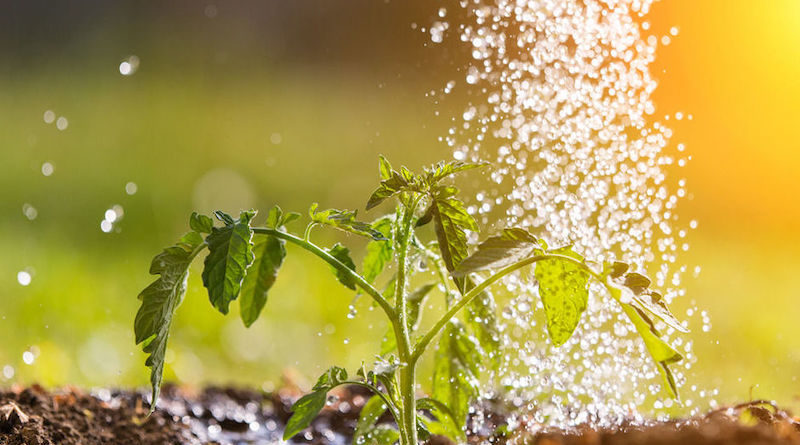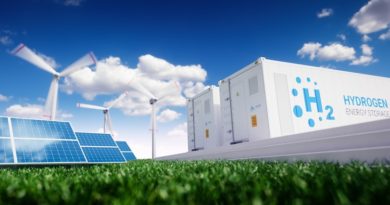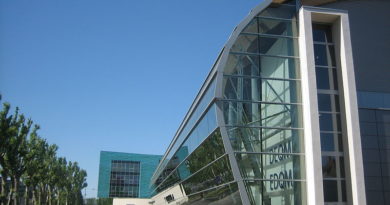
From River 2 Farm 2 Fork, and back
Safe and secure water supplies are fundamental to the delivery of our food, and fair, healthy and environmentally-friendly food systems are at the heart of the Green Deal to transform the Union into a modern, resource-efficient and competitive economy. The Commission itself admits that our food systems consume large amounts of natural resources, resulting in biodiversity loss and negative health impacts. Something needs to change.
Water is therefore central to the success of achieving the EU’s goals of a fair and equitable future.
Water and agriculture are intrinsically linked. The intensive use of anthropogenic substances such as nitrates, pesticides and veterinary medicines, including their metabolites, is increasingly having a negative impact on the quality of drinking water resources.
At the same time, waste water proposes plentiful ways to replenish and nourish our soil while conserving these drinking water supplies.
With this in mind, EurEau welcomes the Farm to Fork (F2F) Strategy and the full value chain approach. The success of the strategy will largely depend on its full alignment with other components of the Green Deal, including its zero pollution ambition, climate change goals and Circular Economy Strategy. The EU needs a systemic change, and the F2F could provide the framework for a sustainable food system. One prerequisite to achieving this is incorporating the goals and requirements of the EU’s water legislation and in particular the Water Framework Directive, its daughter directives (the Environment Quality Standards and Groundwater Directives) and the Nitrates Directive into agricultural legislation such as the CAP.
Farmers need support with what will undoubtedly be a complex transition phase. The Common Agricultural Policy (CAP) is designed to offer the support that farmers need. However, the CAP must also put tools in place that encourage farmers to reduce their environmental footprint and comply with applicable EU legislation. The introduction of the Farm Sustainability Tool for Nutrients provided it is well designed and its recommendations are effectively implemented can be a major step towards full compliance with the Nitrates Directive. The CAP conditionality requirements must be extended, such as farmers should only receive support for practices that will deliver EU water legislation goals. The eco-schemes must remain compulsory.
The F2F is an opportunity for the EU to oversee the implementation of other legislation that is only partly delivering, such as the Sustainable Use of Pesticides Directive.
The revision of this directive is therefore welcome. In addition, pesticides or their metabolites which are hazardous to human health should not be authorised for use. The approval requirements must include the formation of possible hazardous transformation products in the drinking water treatment process. We are pleased to hear that the Commission’s proposed reduction goal for chemical pesticide use is 50%.
With the F2F Strategy, we also have the occasion to look at the impact of excessive nutrient losses on the quality of drinking water resources. Excessive nitrate levels in groundwater used for drinking water production cause hundreds of millions of euros of extra treatment costs to drinking water suppliers. This cost has to be borne by water consumers today. A general reduction goal of nutrient losses of 50% is a first step, but it must be remembered that groundwater pollution is a local or regional phenomenon. The full implementation of the Nitrates Directive should ensure that levels are respected in all regions across Europe.
The upcoming revision of the Sewage Sludge Directive will regulate sludge use in such a way as to prevent harmful effects on soil, vegetation, animals and people when applied to farmland.
EurEau fully supports the Commission’s intention to reduce the excessive use of antimicrobials in animal healthcare, as those may be found back in drinking water resources. The Commission aims to reduce the sale of veterinary antimicrobials by 50%. If properly implemented, this Control-at-Source measure will make a significant contribution to reducing antimicrobial resistance.
We strongly believe the F2F Strategy should not only look at water quality but extend to water quantity. In light of the impacts of climate change and increasingly recurring drought, excessive water abstraction for irrigation purposes must be avoided, since it is unsustainable and may cause local problems to the security of the drinking water supply. With the recently adopted Water Reuse Regulation, farmers have more opportunity to use safe and treated water in irrigation which, in turn, may conserve water resources for drinking water production.
The Farm to Fork Strategy is at the heart of the Green Deal. It is a golden opportunity for the EU to address the challenges of sustainable food systems and build links between healthy people, healthy societies and a healthy planet. Innovation, research and technology, combined with increasing public awareness and demand for sustainable food, will ensure that the Green deal and the F2F will benefit everyone.
The water sector is ready to cooperate with farmers at all levels to progress in the transition process.
About EurEau
EurEau is the voice of Europe’s water sector. We represent drinking water and waste water operators from 29 countries in Europe, from both the private and the public sectors.
Our members are 34 national associations of water services. At EurEau, we bring national water professionals together to agree European water sector positions regarding the management of water quality, resource efficiency and access to water for Europe’s citizens and businesses. The EurEau secretariat is based in Brussels.
With a direct employment of around 476,000 people, the European water sector makes a significant contribution to the European economy.




